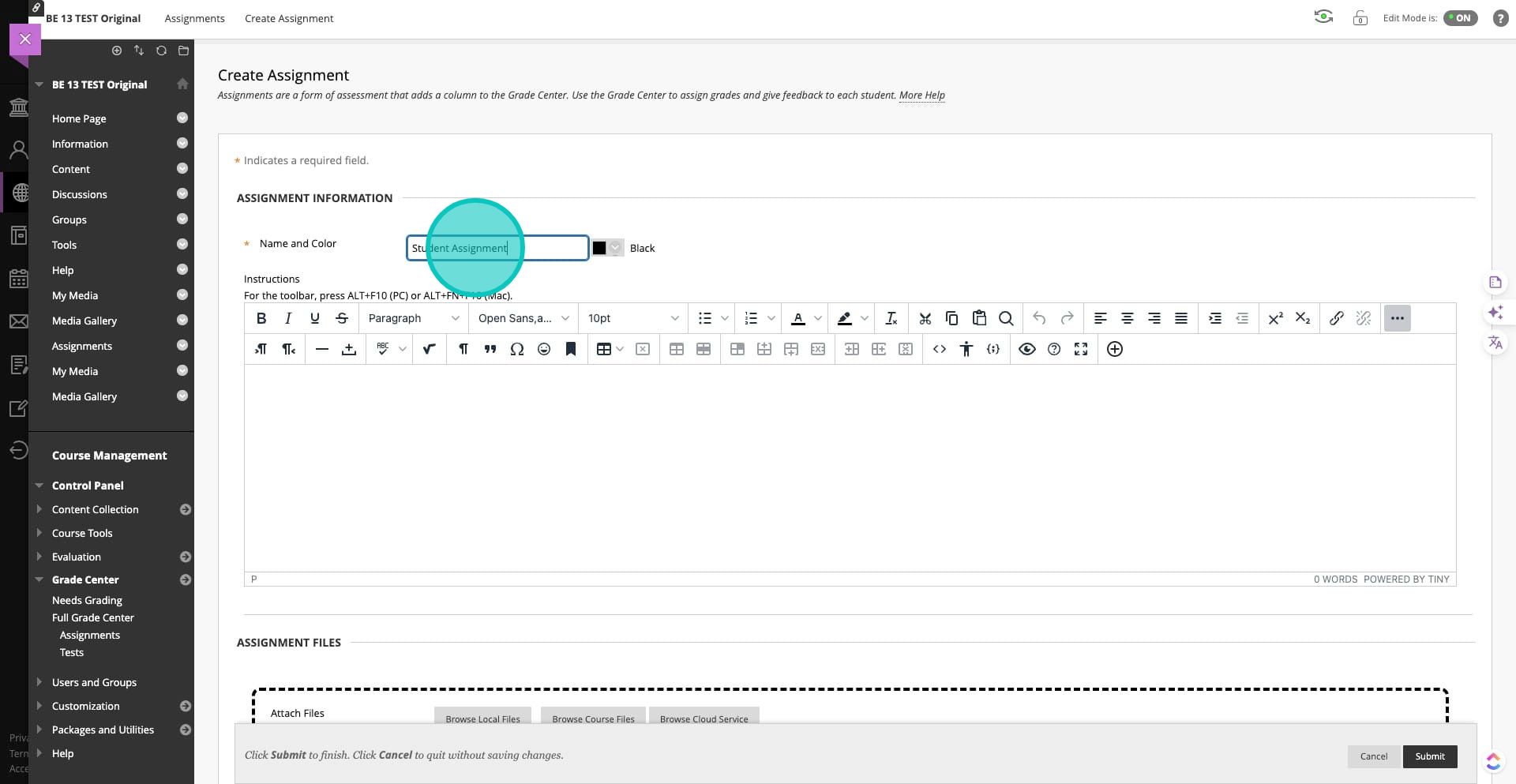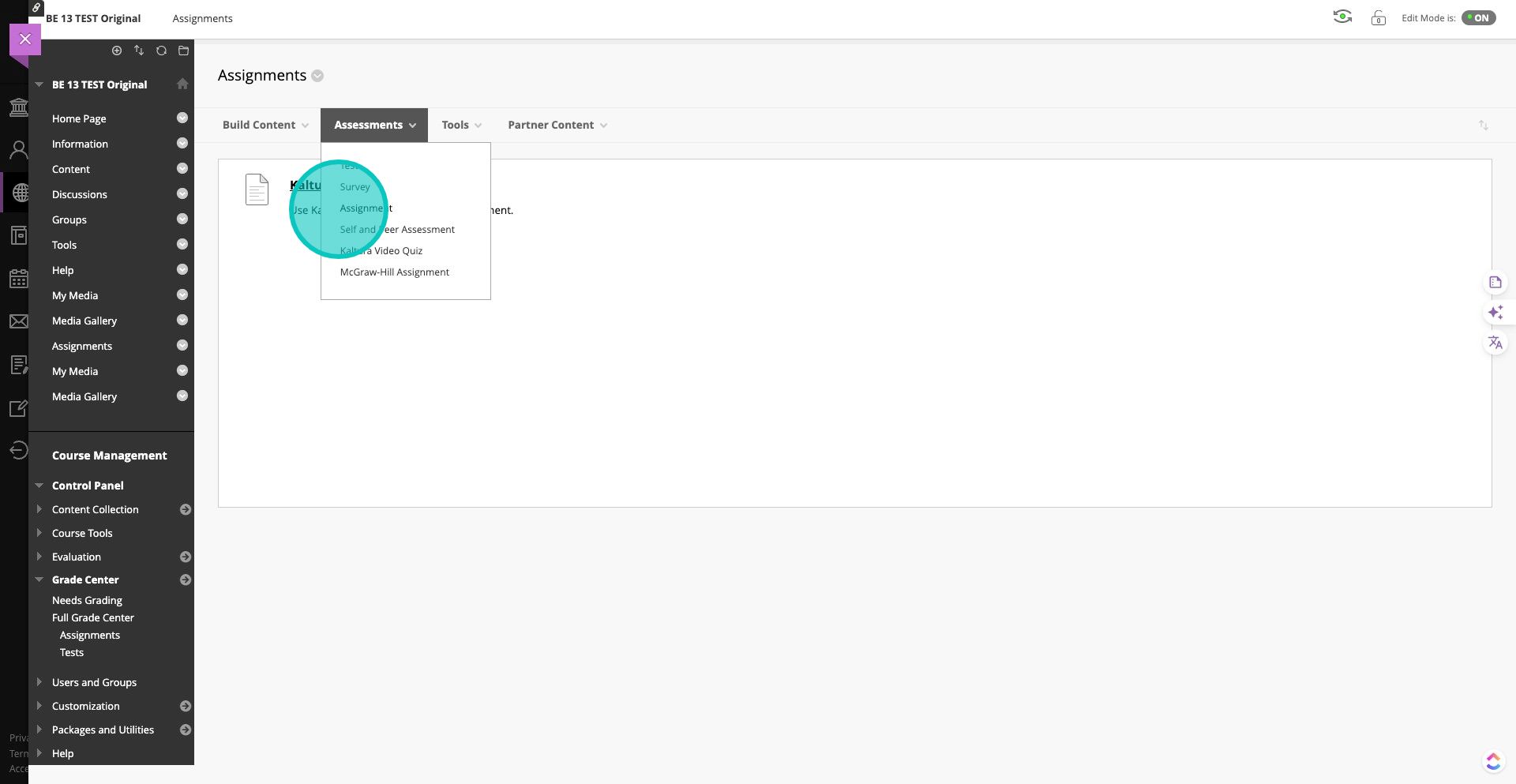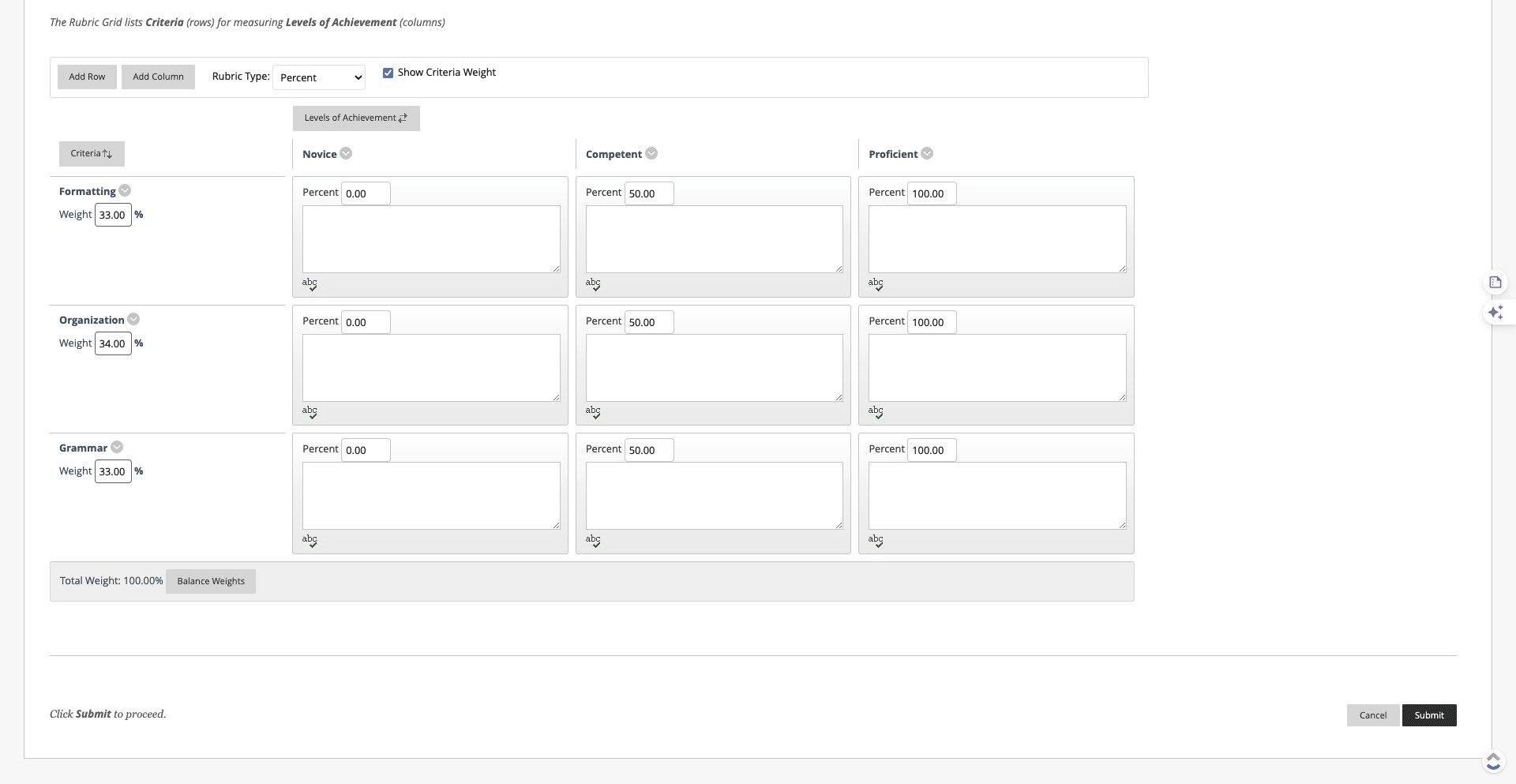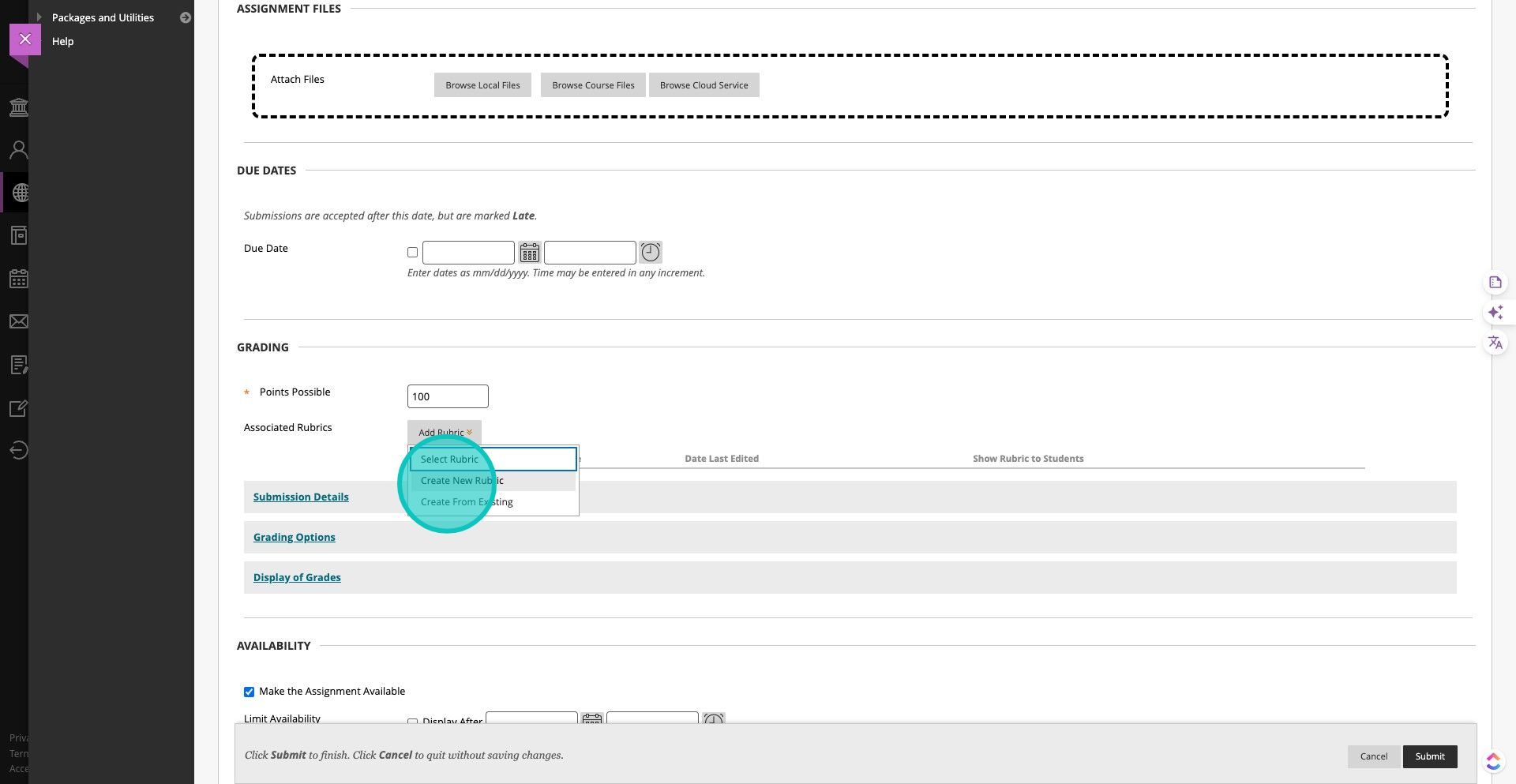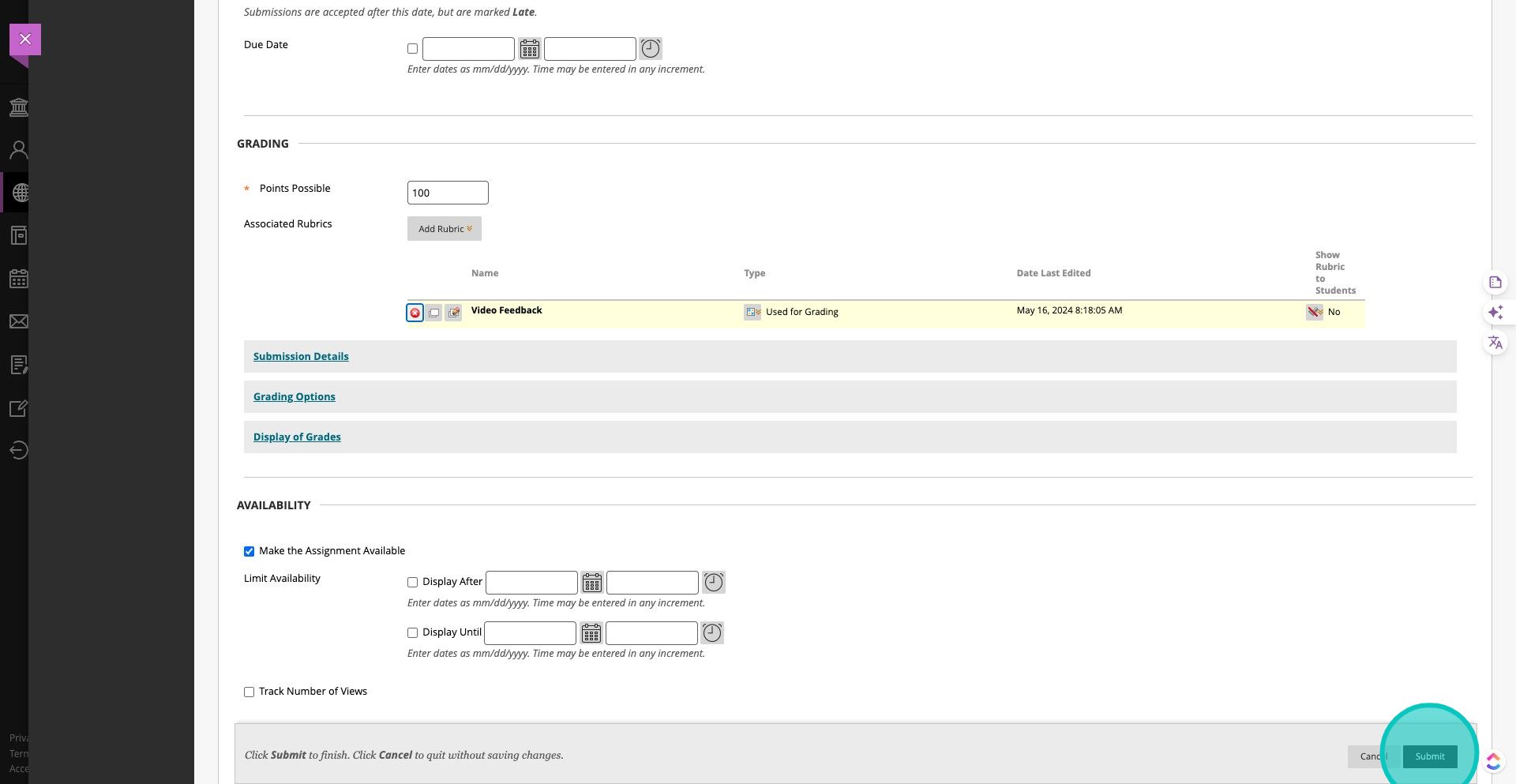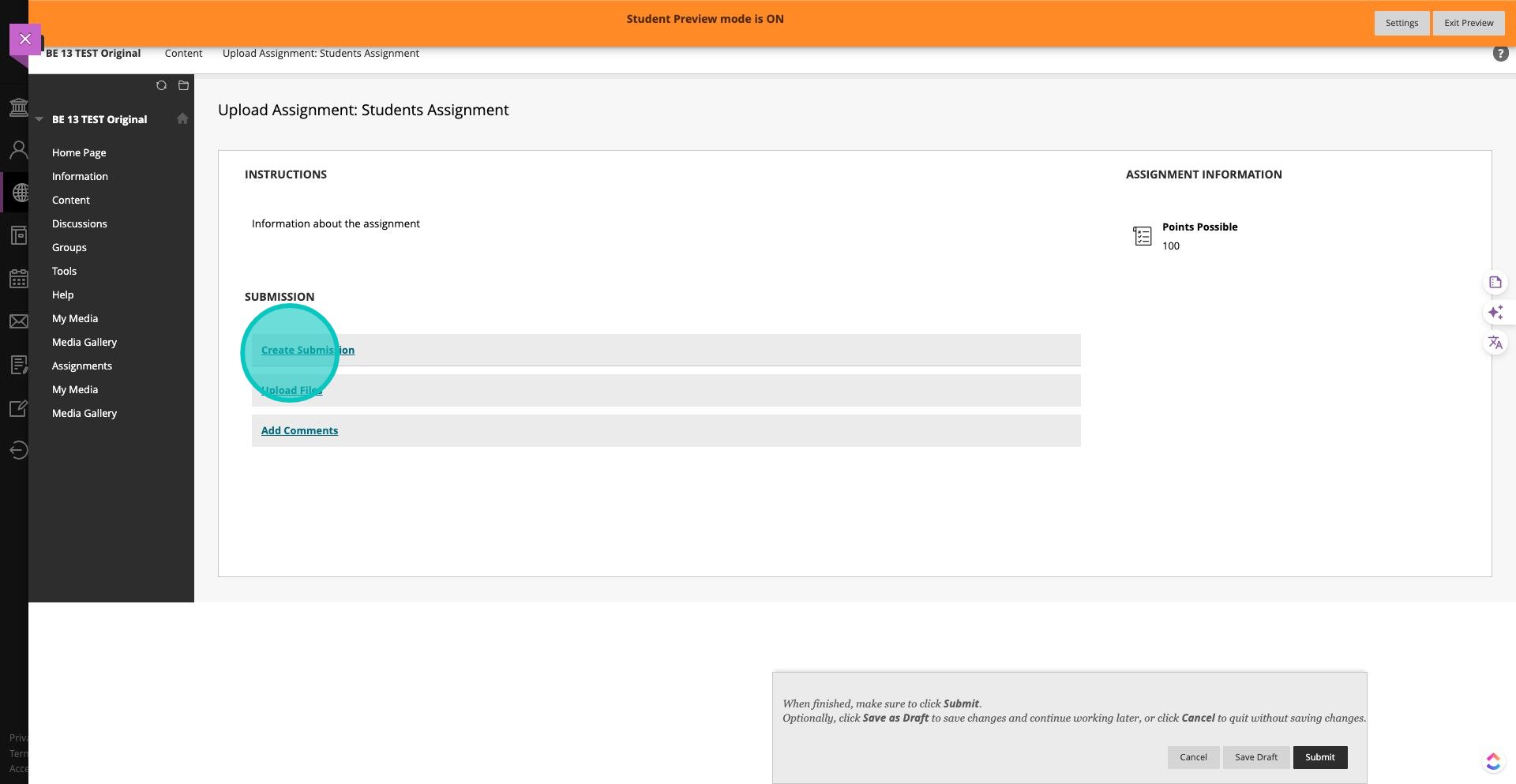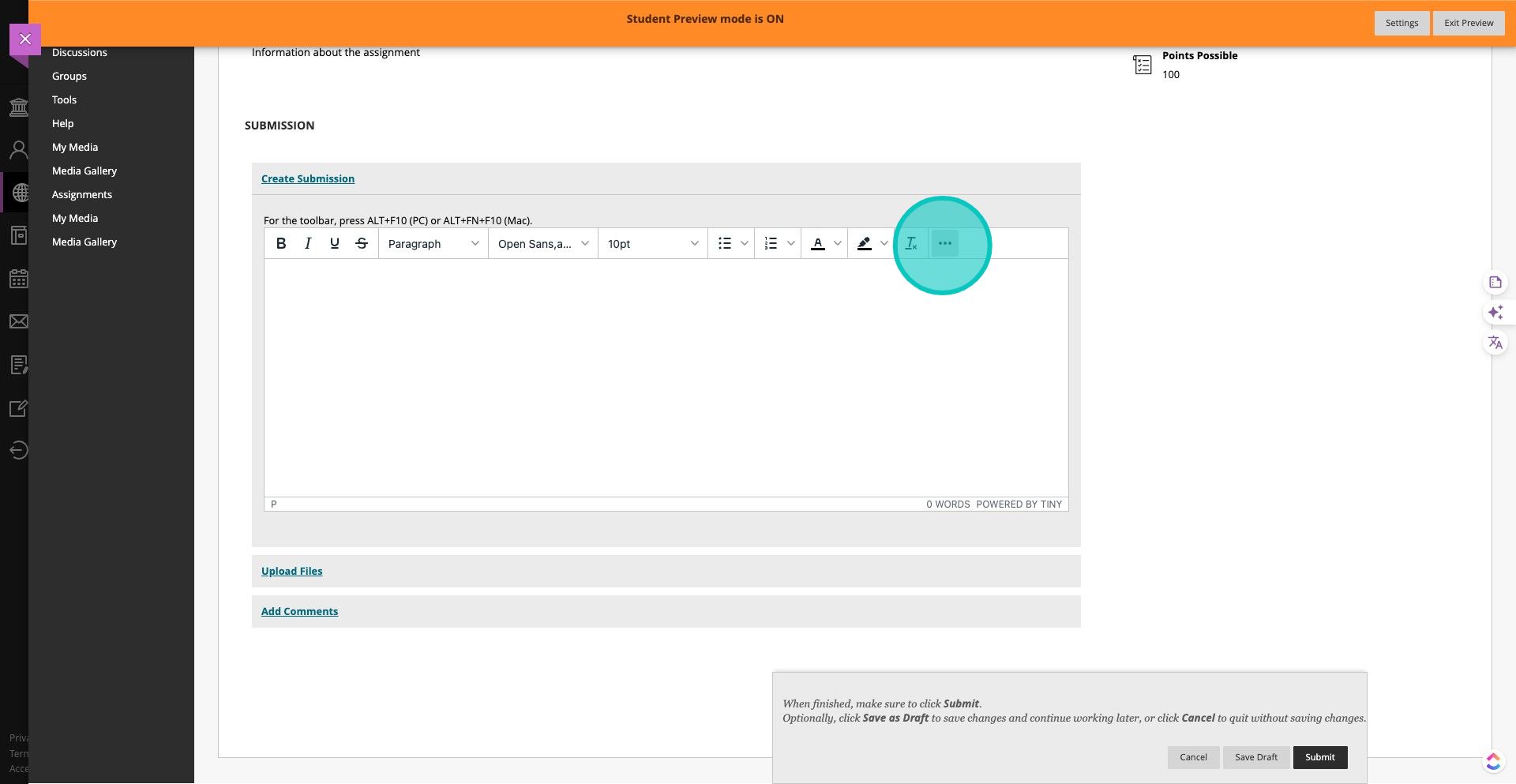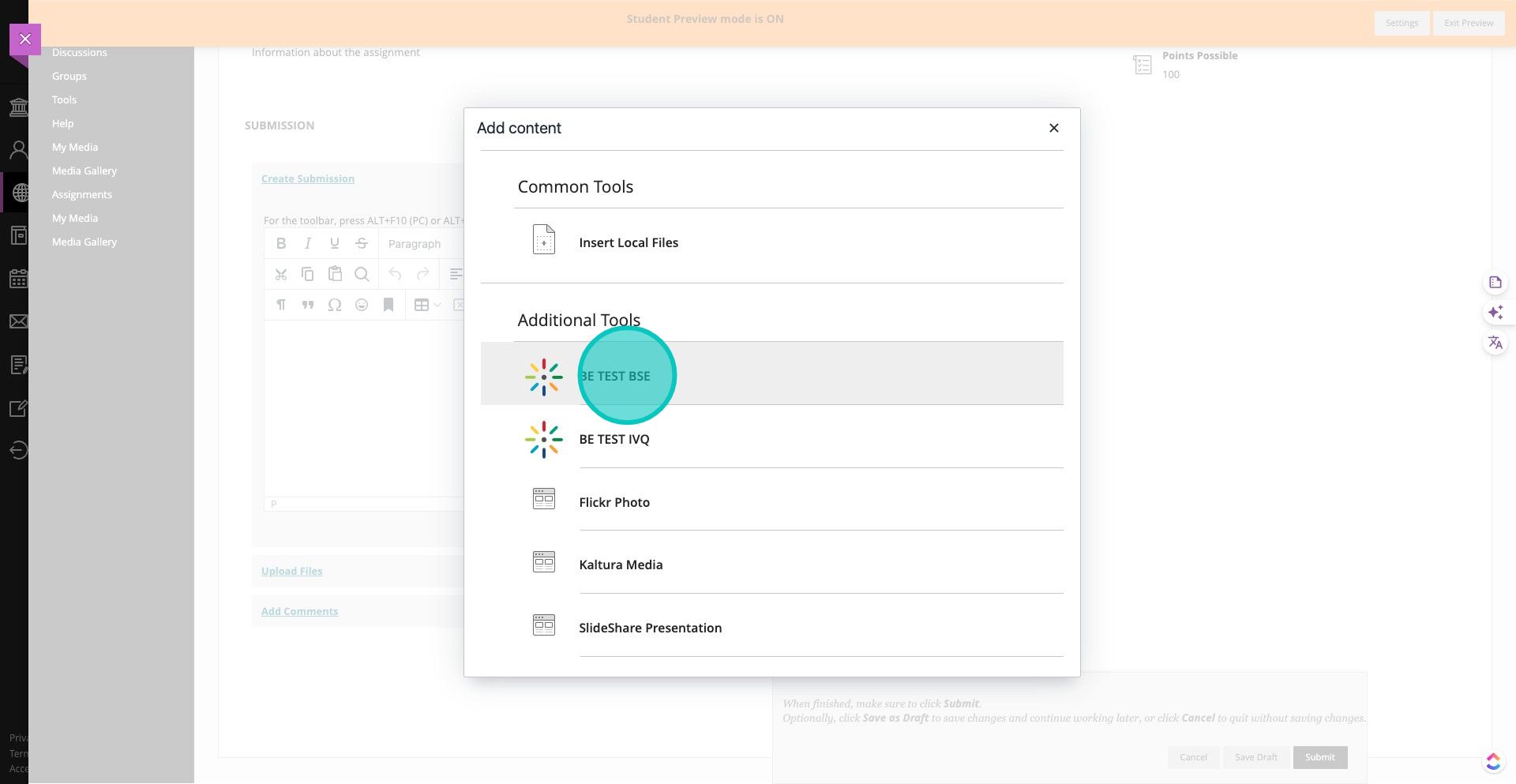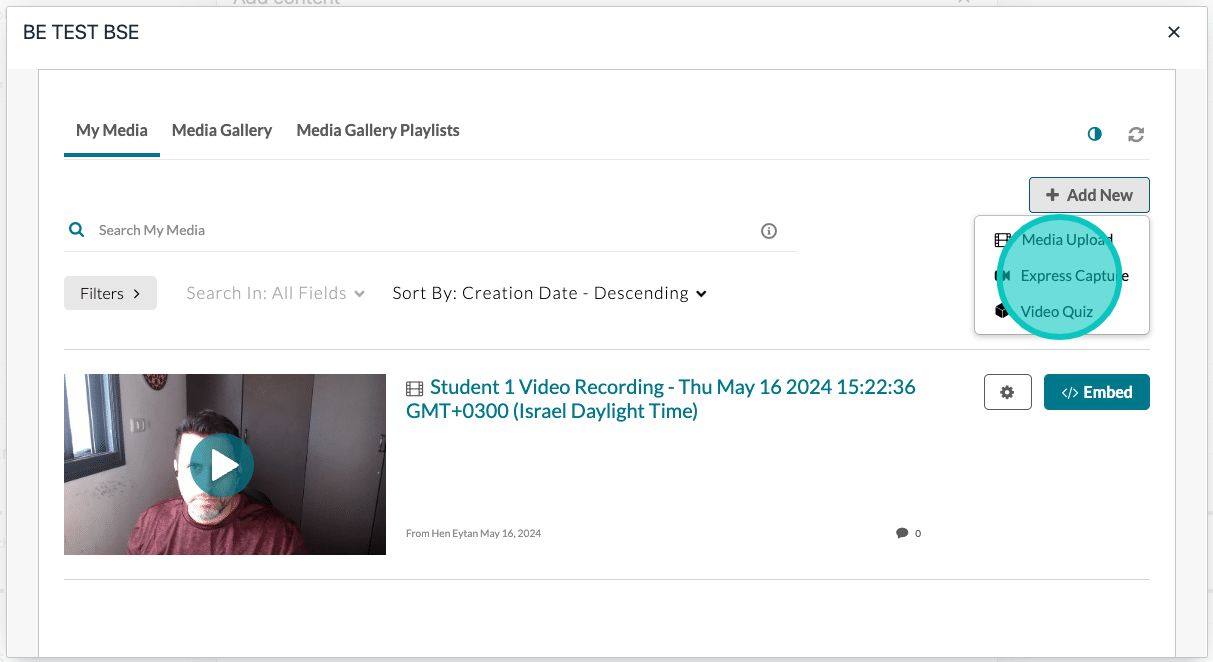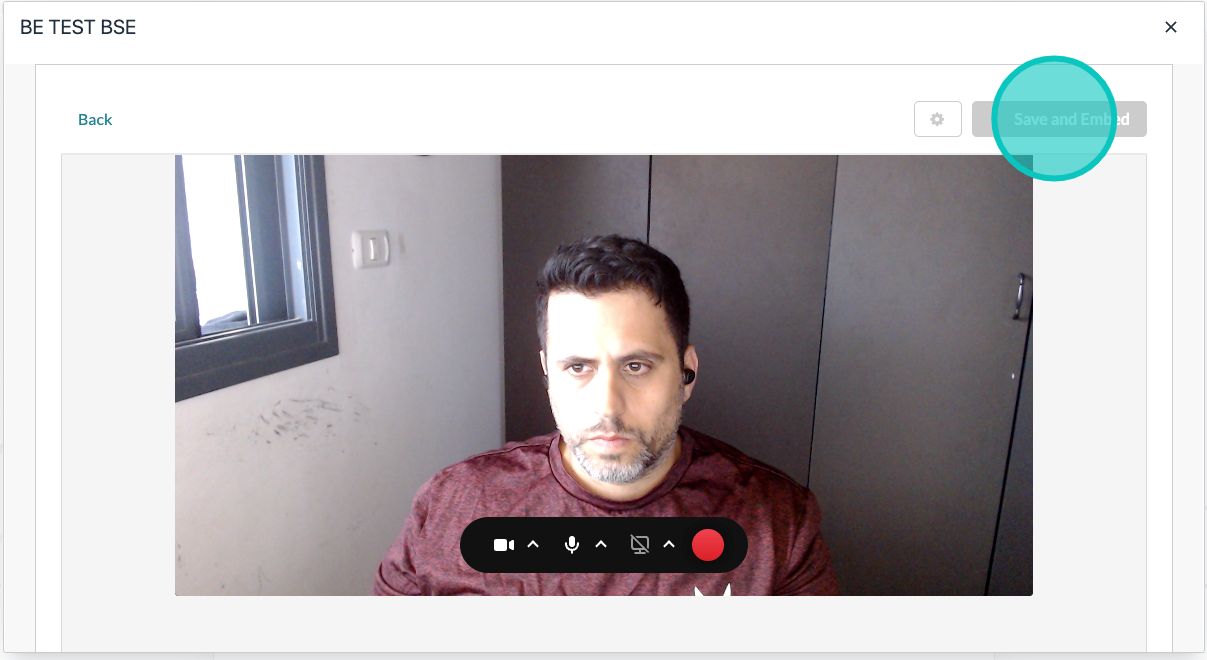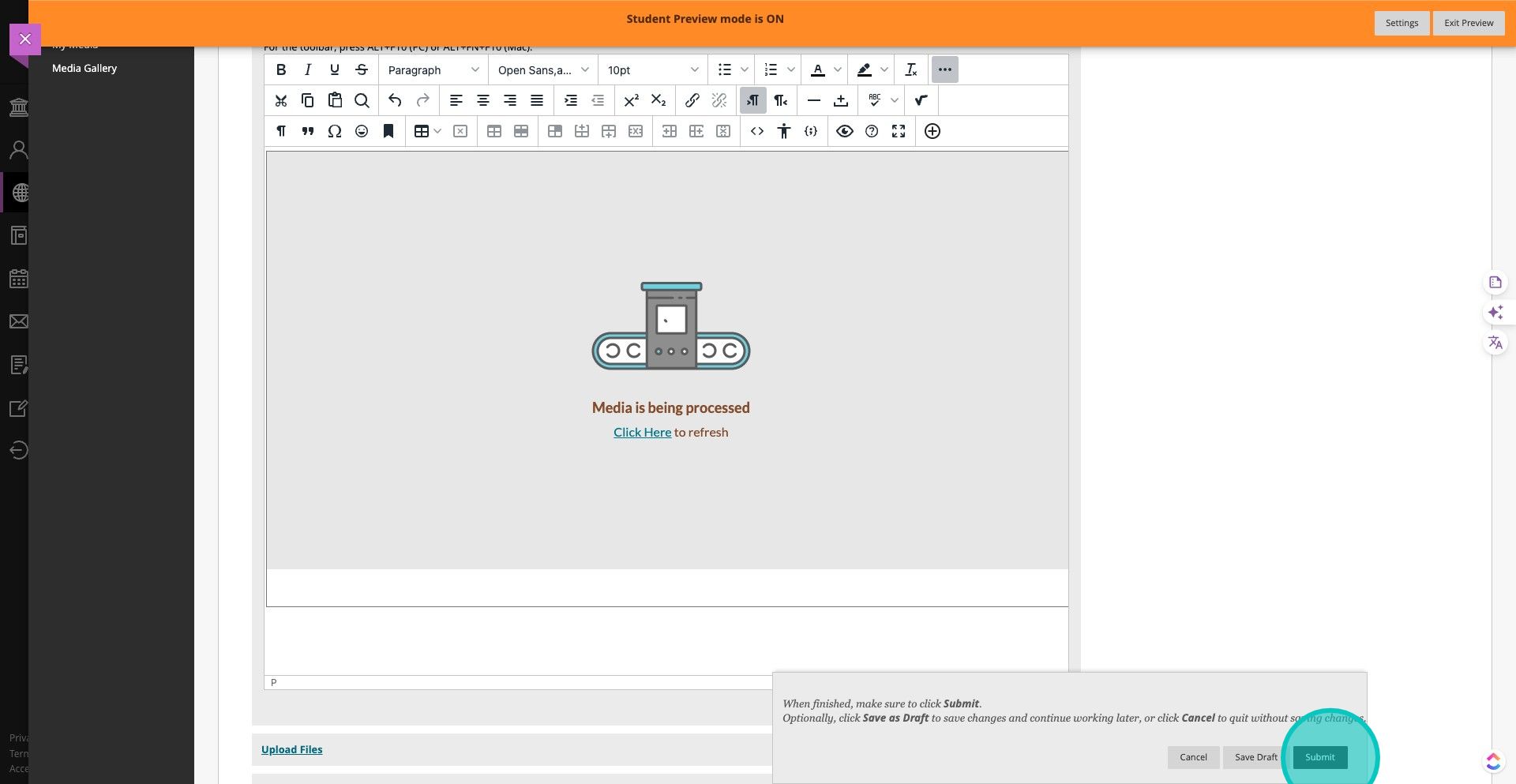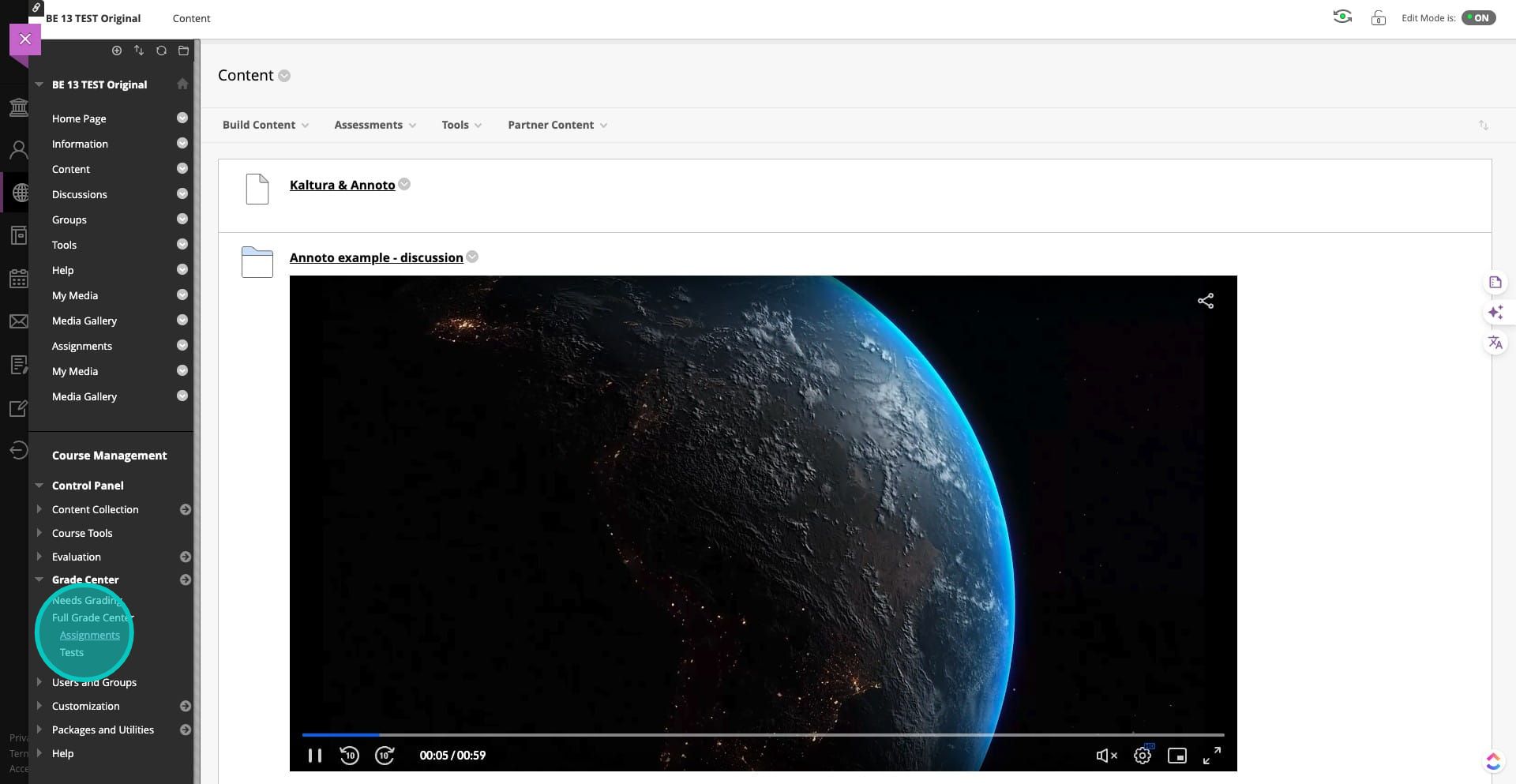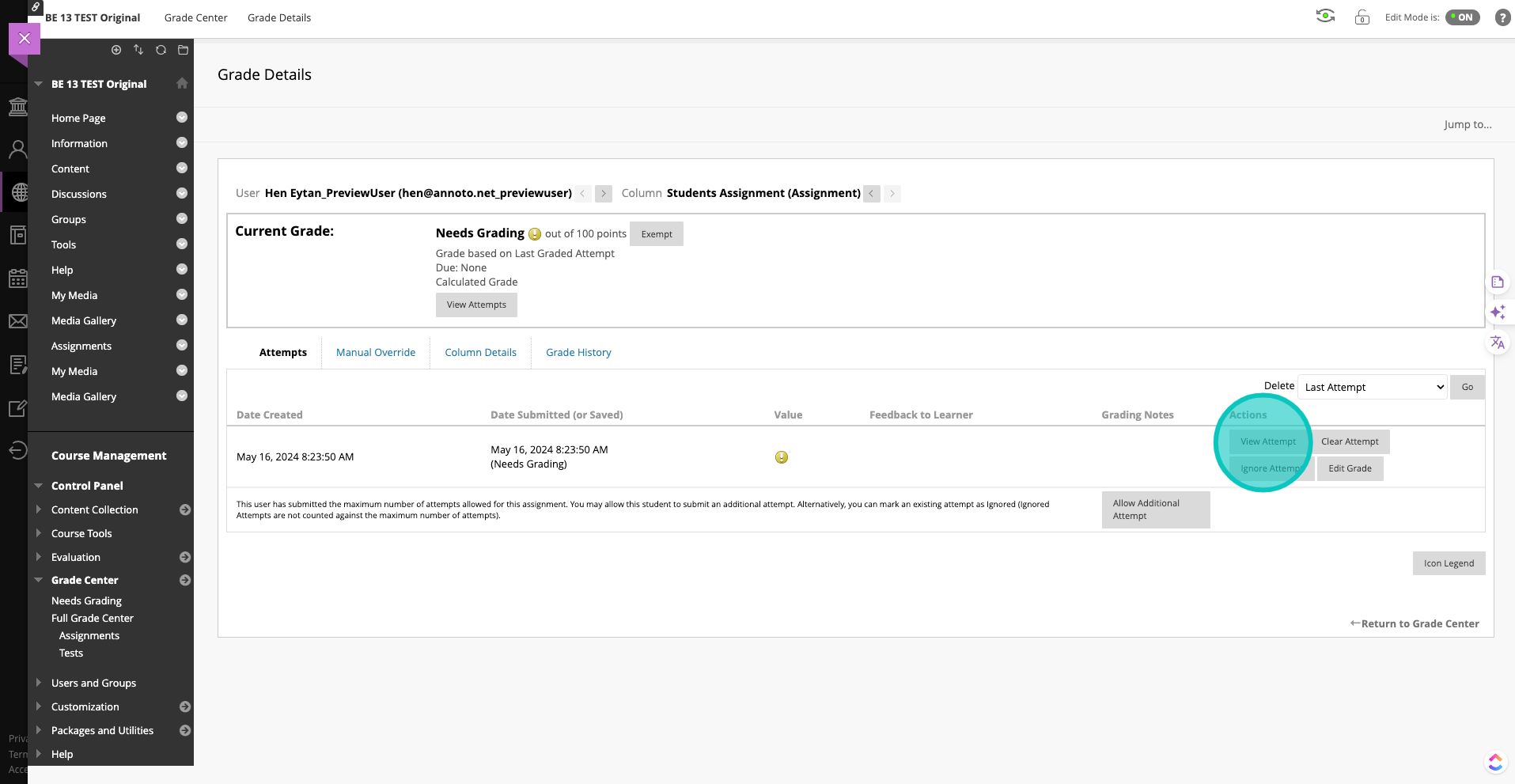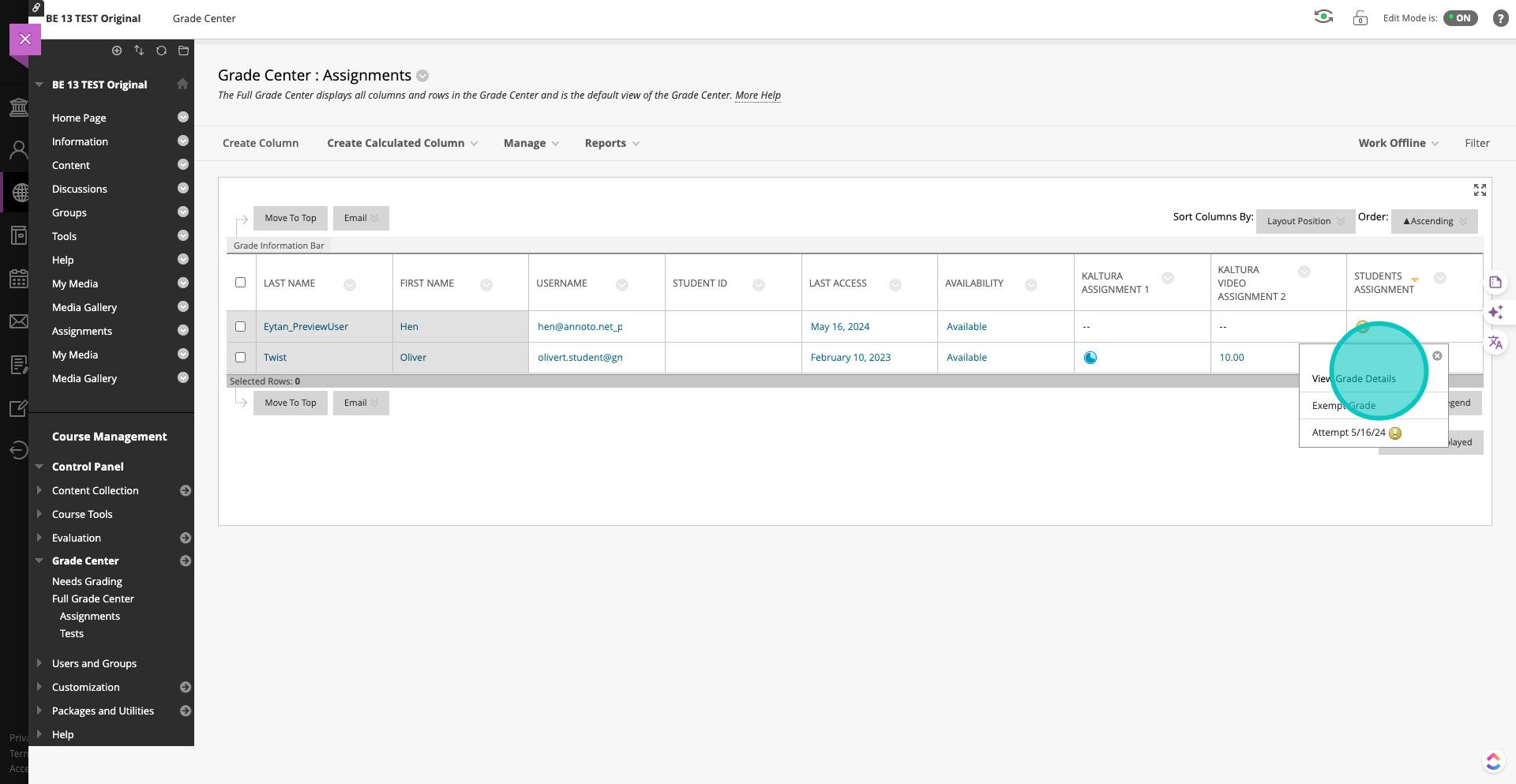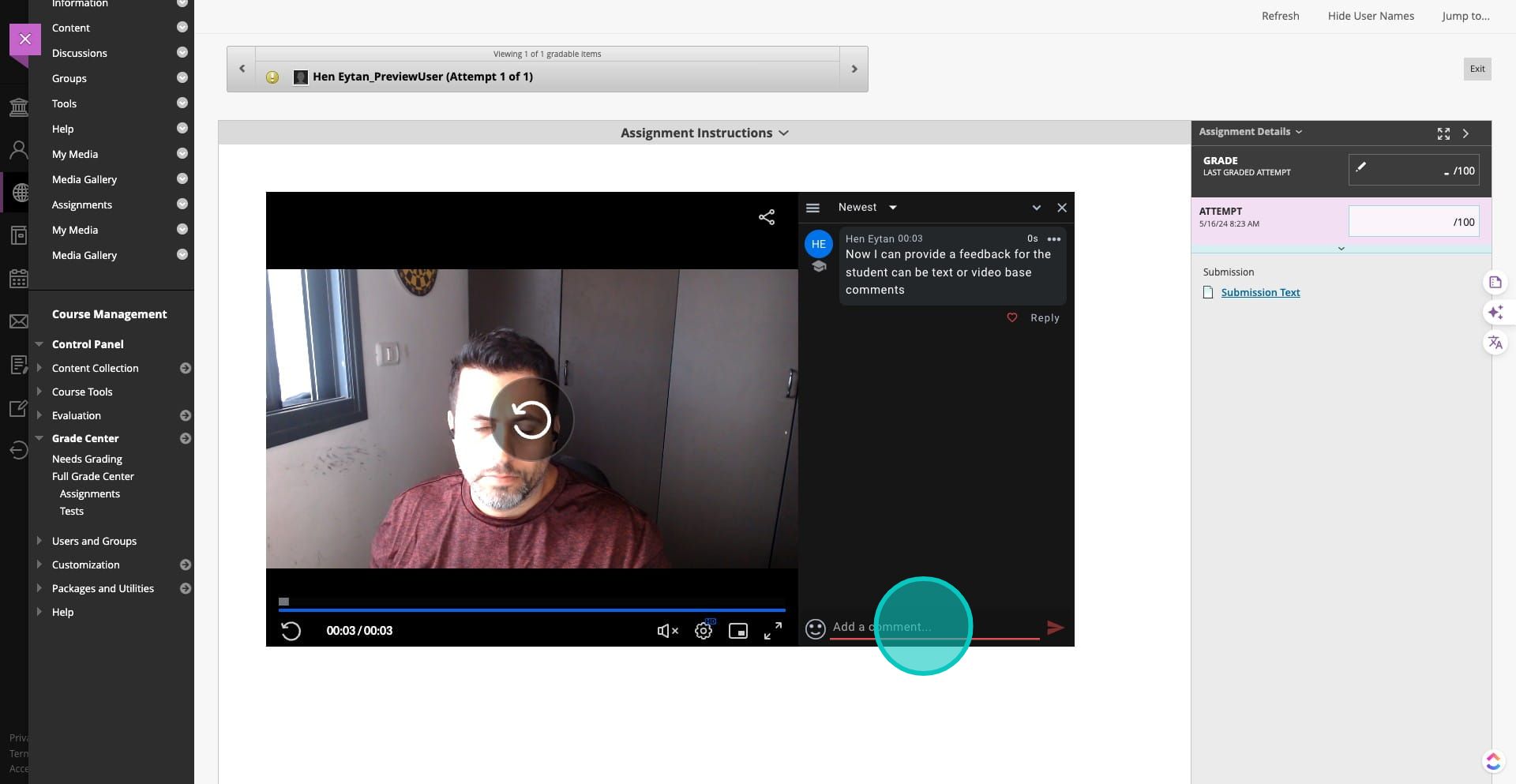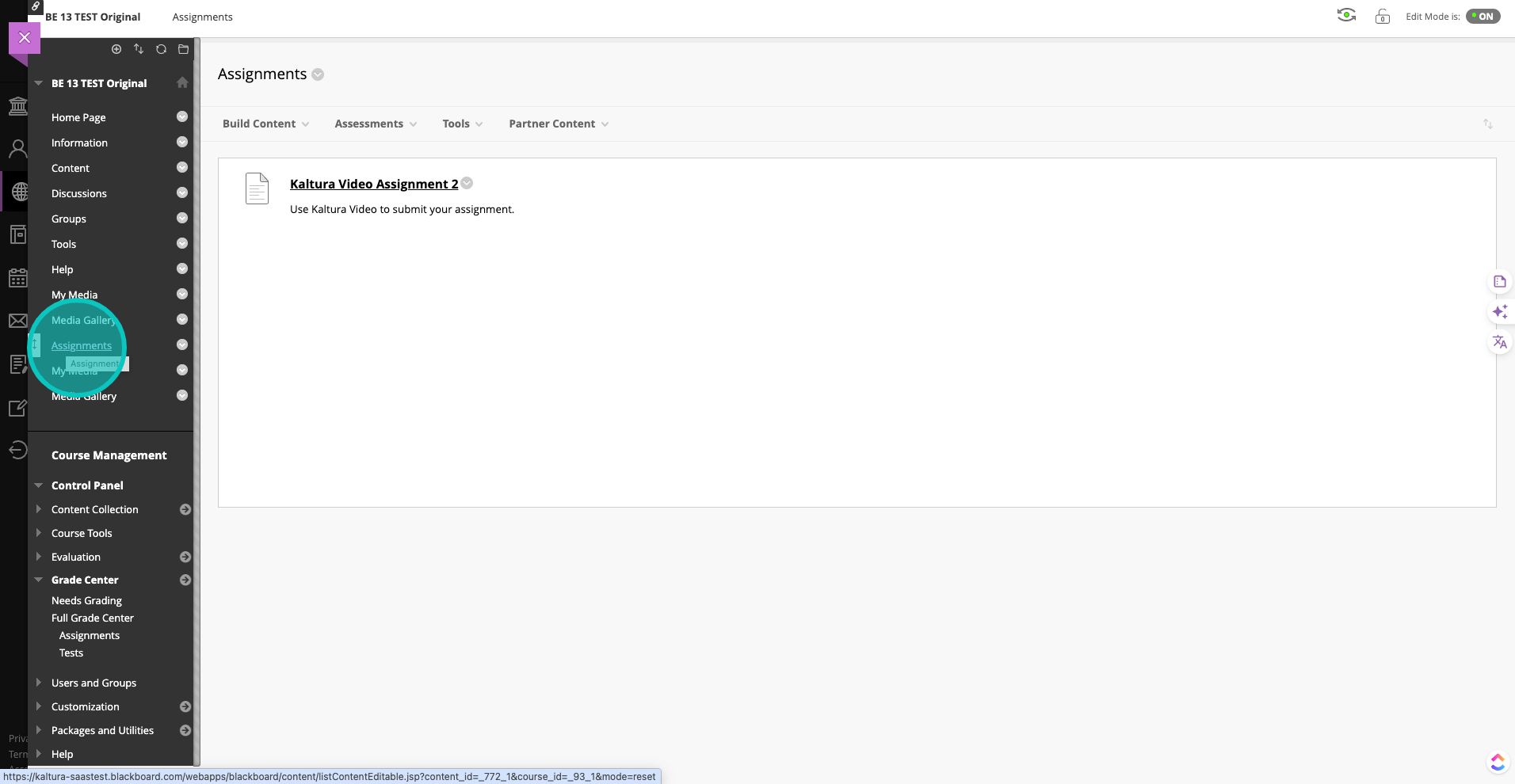
Loading...
Loading...
Loading...
Loading...
Loading...
Loading...
Loading...
Loading...
Loading...
Loading...
Loading...
Annoto enables you to seamlessly add interactive capabilities to your course videos, either at the course level or the video level.
For example, you can set default preferences for Annoto features that will be overlaid across your course video content, and then update specific videos with different desired features.
Alternatively, you can disable Annoto at the course level and enable it for specific videos.
To set up Annoto features in a course, you can activate interactive capabilities across all your course videos through the Preferences section on the Annoto Dashboard.
Here's a brief guide:
Access the Annoto Dashboard: Navigate to the Annoto Dashboard from your course platform.
Go to Kaltura's Media Gallery
Go to the Channel Actions menu
Click on Annoto Dashboard
In the Annoto Dashboard click on the Preferences tab
Enable Features: Choose the features you want to enable for your course videos. You can do this by toggling the options or selecting a preset:
This setup will apply the chosen features to all course videos, enhancing the interactive experience for your students.
There are two ways to set Annoto features for a specific video:
From the Annoto Dashboard
From the Video View
To set Annoto for a specific video from the Annoto dashboard:
In the Annoto Dashboard, click on the Hub tab.
Select the video you want to disable Annoto for (you can search by video title).
Go to the Preferences tab of this video view.
Set the features you want for this video (you can use a preset, such as "Disabled" or "Analytics," or enable only the personal notes for this video).
Go to the video where you want to enable Annoto.
Based on your organization setting, you will have one of the following two options:
You will see the Annoto dashboard open, choose which features you want to enable and exist.
This setup will apply the chosen features to the video, enhancing the interactive experience for your students.
After clicking the Icon , you will see Annoto Dashboard launch
If you click on the menu , you should then click on the Annoto Dashboard:
Transform Your Course Videos: Engage, Assess, and Gain Insights in Seconds Are you looking to make your course videos more interactive and engaging for your students?
Discover how Annoto can help you achiving anything you need! In this guide, you'll learn how to:
Enhance Learning: Incorporate in-video quizzes for real-time knowledge checks.
Skills Assessment: Conduct video critiques for comprehensive skills evaluation and peer reviews.
Deepen Understanding: Facilitate time-based discussions to promote deeper learning.
Extended Self-Learning: Create interactive content that encourages ongoing student engagement and reflection.
Gain Insights: Obtain actionable data on student interaction and video content performance.
We will show you how to effortlessly add these powerful features to your videos, making your course content interactive and engaging, an integral and dynamic part of your curriculum. Get Inspired: See how other already did it from FSU, NYU, Georgia Tech, and many other institutions are transforming their teaching methods with Annoto
Annoto's Video Activity Completion feature seamlessly integrates with Blackboard LMS, providing educators with a powerful tool to monitor and manage student engagement in video-based learning activities. This feature offers detailed insights into which students have completed assigned video content, ensuring that all participants are staying on track with their coursework.
Key Benefits:
Enhanced Engagement Tracking: Easily track video completion rates within the Blackboard LMS, allowing educators to see which students have watched the entire video and who might need additional support.
Automated Insights: Automatically generate reports on video activity completion, saving educators time and effort in monitoring student progress.
Informed Interventions: Identify students who may be falling behind and intervene promptly to provide necessary support, enhancing overall learning outcomes.
Seamless Integration: The Video Activity Completion feature integrates smoothly with Blackboard, ensuring a hassle-free experience for both educators and students.
Data-Driven Decisions: Utilize completion data to make informed decisions about course content and delivery, optimizing the learning experience for all students.
By leveraging Annoto's Video Activity Completion feature within Blackboard LMS, educators can ensure higher levels of student engagement, timely interventions, and a more interactive and effective learning environment.
Annoto's Video Activity Completion feature seamlessly integrates with Blackboard LMS, providing educators with a powerful tool to monitor and manage student engagement in video-based learning activities. This feature offers detailed insights into which students have completed assigned video content, ensuring that all participants are staying on track with their coursework.
Key Benefits:
Enhanced Engagement Tracking: Easily track video completion rates within the Blackboard LMS, allowing educators to see which students have watched the entire video and who might need additional support.
Automated Insights: Automatically generate reports on video activity completion, saving educators time and effort in monitoring student progress.
Informed Interventions: Identify students who may be falling behind and intervene promptly to provide necessary support, enhancing overall learning outcomes.
Seamless Integration: The Video Activity Completion feature integrates smoothly with Blackboard, ensuring a hassle-free experience for both educators and students.
Data-Driven Decisions: Utilize completion data to make informed decisions about course content and delivery, optimizing the learning experience for all students.
By leveraging Annoto's Video Activity Completion feature within Blackboard LMS, educators can ensure higher levels of student engagement, timely interventions, and a more interactive and effective learning environment.
Once Annoto is , it is automatically added to videos that are embedded in your Blackboard.
Under Course Content page:
Go to Build Content
Choose Annoto Widget Embed
3. In the Annoto Widget Embed window, add the URL (in [Embed Code\ URL]):
4. Add the video URL and the video title.
If you want – you can choose the embed aspect ratio and the embed size:
5. Click Embed
Annoto will be automatically added to the video.
Under Course Content page:
Go to Build Content
Choose Content Folder
3. In the Content Folder window, add the name of the activity
4. In the Text window, click on the Plus icon (called: add content):
5. In Add Content window, choose Annoto Widget Embed
6. In the Annoto Widget Embed window, add the URL (in [Embed Code\ URL]):
4. Add the video URL and the video title.
If you want – you can choose the embed aspect ratio and the embed size:
5. Click Embed
Annoto will be automatically added to the video.
6. Submit the activity
You can access the Annoto Dashboard in two ways:
From the Course Level
From the Video view
Go to your Course Management menu
Click on Course Tools
Choose Annoto Dashboard
The Annoto Insights Dashboard is displayed.
Go to one of the video where you have Annoto.
Based on your organization setting, you will have one of the following two options:
In order to use Annoto in a video within your Blackboard
1. Add the video to your Media Gallery\ My Media
2. Go to Build Content
3. Choose Content Folder
3. In the Content Folder window, add the name of the activity
4. In the Text window, click on the Plus icon (called: add content):
5. In Add Content window, choose Kaltura Media
6. Click Embed for the video you are interested in
If you want – you can choose the embed aspect ratio and the embed size, on the gear icon next to Embed icon
Annoto will be automatically added to the video.
Can't see anything? Check the next section to learn how to set Annoto features.
In this short demonstration, we'll show you how to create a student assignment for submitting a video for review.
This process allows both peers and instructors to provide feedback on the student's assignment by using in-context comments provided by Annoto.
Here's the workflow you can follow:
Set up the assignment.
Establish rubrics that include the desired criteria.
Have students submit their assignments.
Instructors can then review the videos, provide feedback, and assign a grade based on the rubrics and criteria they have set.
All of this can be done within the Grade Center of Blackboard!
That's it! This process allows for effective peer review and makes grading more structured and efficient.
1. Login to Blackboard as an instracture
2. Click on "Assigments"
3. Click on adding "Assignment"
4. Click to add the assignment name
5. Create the desired Rubrics
6. Define the criteria to be used and the corresponding weights for grading.
7. Click to submit the assignment.
8. Now, let's outline the workflow for students to submit their videos for feedback purposes.
9. Click on the "Add content"
10. Click on Embed Kaltura Media
11. The students have two options:
They can upload an existing video they have already recorded.
They can record a video directly using Kaltura Express Capture.
12. When they use Kaltura Express Capture, a window will appear, giving them the option to record using thier camera.
Once done, they simply click on "Save and Embed".
13. Finally, click on "Submit."
14. Now, as an instructor, we will review the student assignment and provide feedback. We have the ability to annotate it using Annoto. To access the submitted assignments, click on the Grade Center.
15. Click here to view the student assignment.
16. Click here to see the submitted video.
17. Provide your own time-based feedback in the form of text and video using Annoto comments. Assign a grade based on the specific rubrics you have defined. And the best part is, you can perform all of these tasks directly within Blackboard!
Have questions? Contact us at support@annoto.net
Annoto's Assessment Criteria Library is a robust feature designed to enhance the educational experience by providing a structured and consistent way to evaluate video-based content.
Here's a concise overview of its key components and benefits:
Key Components:
Pre-Defined Criteria: The library offers a set of pre-defined assessment criteria, making it easy for educators to apply standardized evaluations across different courses and videos.
Customizable Options: Users can tailor the criteria to suit specific course needs, ensuring assessments are relevant and targeted.
Reusable for All Courses: Criteria can be saved and reused across multiple courses, saving time and effort in the assessment setup process.
User-Friendly Interface: Designed with ease of use in mind, the interface allows educators to quickly set up and modify criteria, ensuring a hassle-free experience.
After clicking the Icon , you will see Annoto Dashboard launch
If you click on the menu , you should then click on the Annoto Dashboard:
to learn about the amazing analytics the dashboard provides and all the insights that can be gained from them.
Annoto's In-Video Quizzes enhance learner engagement by integrating questions directly within videos. While traditionally used for grading, not all quizzes need to impact course grades. Annoto allows instructors to set quizzes as non-graded, encouraging participation without the pressure of evaluation. This feature is ideal for practice, knowledge checks, or feedback, supporting a learning environment focused on mastery and confidence rather than formal assessment.
Annoto enhances learning in Blackboard by integrating interactive, in-video quizzes with Kaltura videos. This feature supports educators in creating engaging content and provides valuable insights into student performance.
Quizzes are seamlessly embedded within videos, allowing dynamic student interaction.
With automatic grade passback to the Blackboard gradebook, quiz results are instantly recorded, saving time and ensuring accurate grade tracking.
Detailed analytics on quiz performance help educators adjust instructional strategies based on student interaction and areas of difficulty.

